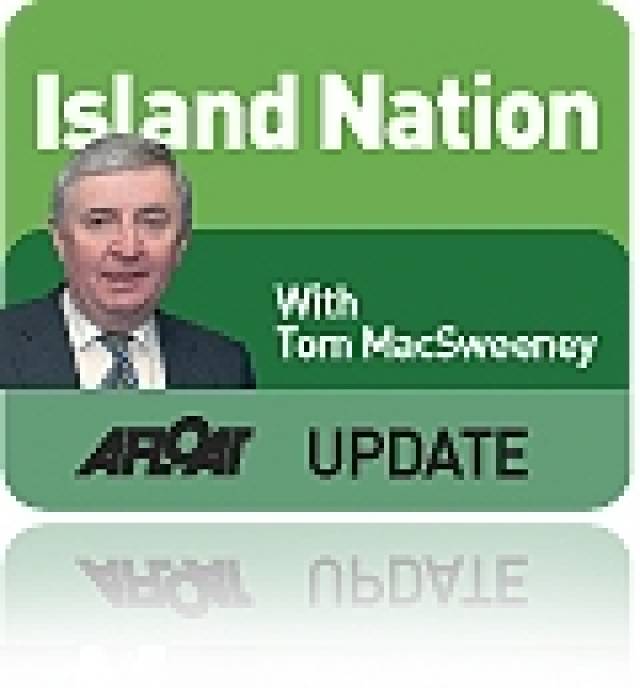#seachange – The Government is planning a new maritime safety strategy. The Irish Maritime Administration, which is effectively the Coast Guard and other aspects of maritime transport within the Department of Transport, Tourism and Sport, has decided that Ireland needs a new maritime safety culture.
The IMA was established in 2013. It comprises the Maritime Safety Policy Division, the Marine Survey Office, the Irish Coast Guard, the Maritime Transport Division and a new Maritime Services Division. In an island nation which fully respected its maritime requirements these should be within a Department of the Marine, but civil service and internal politicking ensured that it was part of the break-up of maritime responsibilities within Government, despite promises that all maritime matters would be under one Department giving the maritime sphere a higher presence in Government and despite attempts by Marine Minister Simon Coveney to bring safety matters within his Department of Agriculture, Food and Marine
While safety at sea must be embraced, when government decides to draw up new or more regulations, it is time for examination of the motives and their aim. For example, single-handed sailing is not approved of by Irish officialdom. That French Figaro Race passing through Irish waters last week and all who like to sail solo are not in favour with Irish maritime authorities.
The Maritime Administration has decided to develop a new Maritime Safety Strategy – 'Sea Change – Building a New Maritime Safety Culture.' This, it says, "will focus on building a culture of safety and will target the main causes of casualties in the maritime sector."
It will cover all types of craft being used for any purpose on Irish coastal or inland waters, including recreational craft, fishing vessels, passenger vessels and cargo vessels.
That is very wide-ranging.
There have been 134 maritime fatalities since 2002 and Minister Leo Varadkar maintains that "almost half" were the result of leisure activities on recreational craft. He is trying to parallel his road safety approach to the maritime sphere, maintaining that roads are safer as a result of regulations. That opinion would not go unchallenged. While safety is an issue that must be treated seriously there has been an obsession amongst Government with imposition of regulations in all aspects of life where Ireland is possibly the most regulated country in the EU. There remains, at present, a freedom to use the waters around our island nation and, while emphasising the need for a culture of maritime safety, any attempts by civil service mandarins to impose more controls on that freedom should be examined closely.
"The sea and any open water can be hostile and dangerous environments and demand total respect," said the Minister. I agree and by consulting with stakeholders and the general public, it would be good to reach a situation where there are no fatalities. But the Irish Maritime Administration, by some of its previous attitudes towards safety, such as attempting to shut down Coastal Radio Stations at Valentia and Malin Head, has not inspired confidence. It did not demonstrate a willingness to listen to what it was told. It has shown a more dictatorial than responsive attitude to the views of stakeholders who have brought instances to my attention. There was, for example, the RNLI provision of lifebelts with a built-in radio alert safety system to which the Coast Guard objected because control was not direct to them but would have been via the lifeboat service. So there is reason to examine a desire for more regulations.
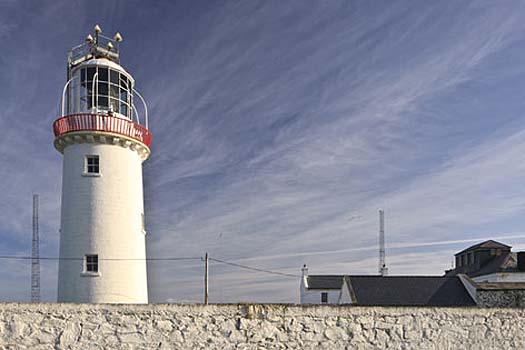
Loop Head lighthouse in County Clare
Notably, one of the points the IMA highlights in its reasons for a new maritime safety strategy is : Inadequate enforcement of regulations.
I support safety at sea, but long journalistic experience has taught me to always examine the reasons for the desire of government officials for more regulations.
The Minister has urged all stakeholders, and the general public, to engage with a consultation process open until August 29 and "to contribute their ideas to the Irish Maritime Administration.
One life lost unnecessarily at sea is one fatality too many.
One of the advantages of being an island nation is the freedom to go to sea, which is a freedom that imposes disciplines of safety on those who use our coastal and inland waters. Safety regulations are necessary but had civil service mentality been exercised in the past would there have been explorers of the sea, round-the-world voyagers and solo sailors?
I hope that this time the Irish Maritime Administration will learn the lesson of listening rather than dictating to stakeholders.
SAILING STRATEGY
There is a line in the Irish Sailing Association's Strategic Review which stuck out for me: "Racing currently forms the backbone of club activity." But is this too dominant in the sport which it appears is in a crisis of dwindling interest? The ISA has been described as a bureaucracy detached from the reality of what is going on and the new Strategy is an attempt to change that. I believe in the concept of sailing being a 'sport for all' as the ISA has previously highlighted. But can it ever be that when the perception remains of an elitist sport run by exclusive and at times unwelcoming clubs, a point which was forcefully put at this year's meeting of the South Coast Offshore Racing Association which I previously reported in Afloat?
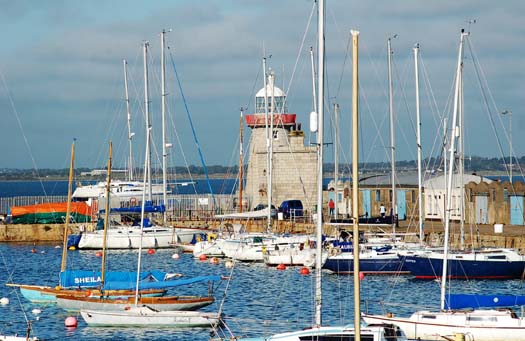
Howth Harbour in county Dublin, a popular boating venue
There are skippers who cannot find enough crew and some clubs have moved to try to accommodate this by offering crew memberships. But they may have to move further. A club structure is essential, so membership of clubs and income is vital to support them, but there are people whose only desire to go sailing may be one night a week racing when they would crew and who, in these economic times, may not be able to afford even 'crew' membership, but would crew a boat and add to the club's income on an even partial basis. While keeping an essential percentage of a boat's crewing to club members, perhaps clubs need to accommodate new styles and requirements of 'crewing' to increase the sport's popularity. The 'elitist' image, which has been fostered in the past by some clubs and their members, needs to be removed if it is to be "a sport for all" and club membership encouraged, as also that it can be for cruising and not just for racing.
THE DIFFERENT FACES OF SEA NATURE
I wrote about the nature of the sea and another example is the photos from Antarctica sent to me for my blog this week. They were taken by a lady named Lara Harrison, who was there as a medic. Look at them and reflect on what is happening in these areas due to global warming and why we all need to be conscious of the natural environment.
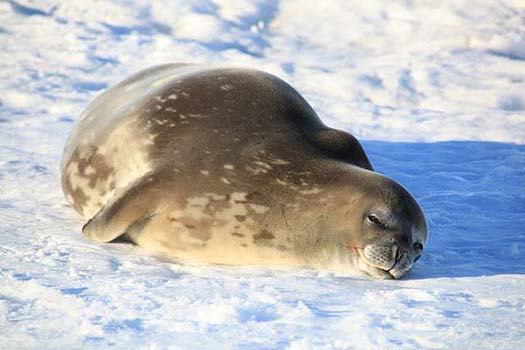
Nice cool day and (below) a bit crowded on this beach
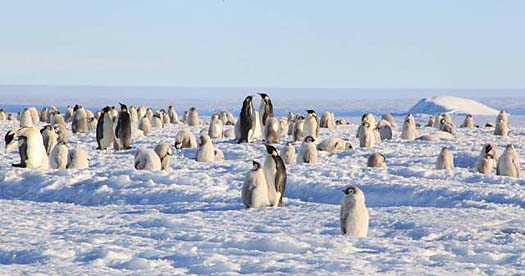
THIS ISLAND NATION ON RADIO
On the July edition of THIS ISLAND NATION monthly hour-long radio programme next week I will be talking to the last man alive from the islanders who were evacuated from the Blaskets. As a youngster he was described as "the loneliest boy in the world, whose only playmates are seagulls." I will also discuss with ISA President, David Lovegrove, the Association's new strategy; hear about Loop Head Lighthouse; a new five-man currach; the history of Kinsale Harbour and much more. The programme will be available here on the AFLOAT website and is also broadcast on Near FM Dublin 90.3; CRY 104FM Cork; and Raidio Corca Baiscinn, Clare 94.8 FM
Twitter: @TomMacSweeney



























